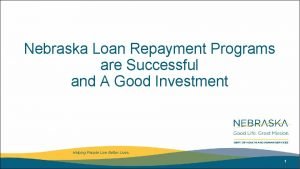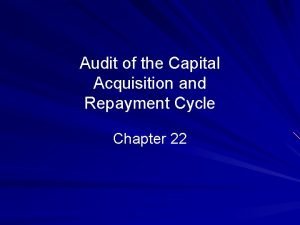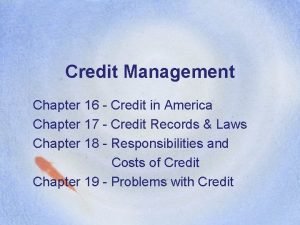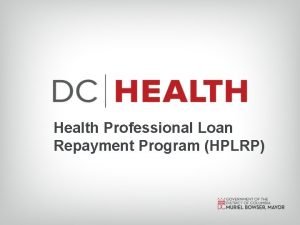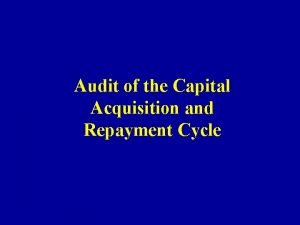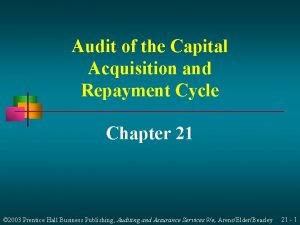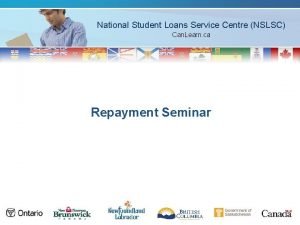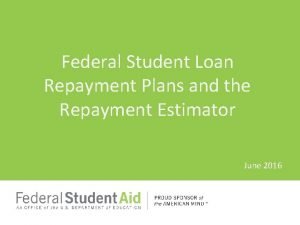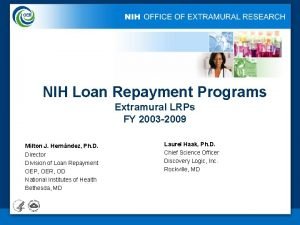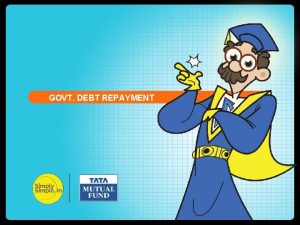Mortgage Open Mortgage permits repayment of the amount









- Slides: 9

Mortgage

Open Mortgage: permits repayment of the amount at any time, without penalty. Repayment terms are more flexible than a closed mortgage, which do not usually allow for prepayment without penalty • Pros Payment terms are flexible No penalty Can pay at any time • Cons Higher interest rate

Variable Rate: interest rate is not fixed • Pros Initial rates are low It allows for repayment before rates go up • Cons Rates could increase month-to-month The cap on an interest rate is typically higher

Closed Mortgage: cannot be repaid without prepayment penalties during its term, except as permitted in the mortgage agreement. • Pros Interest is lower Pre payment options allow you to pay off faster • Cons Penalty costs Terms are longer No flexibility

Fixed Rate: a loan where the interest rate doesn't fluctuate during the fixed rate period of the loan, this allows the borrower to accurately predict their future payments • Pros Your interest rate isn’t going to change You can account for the payment in an emergency fund in case of a job loss or reduction in income • Cons The interest rate will be higher than a variable rate It can take longer to pay off the loan because the APR is higher

Convertible Mortgage: gives the borrower the option to convert to a fixed-rate mortgage, convertible are marketed as a way to avoid rising interest rates and usually include specific conditions • Pros Saves on refinance costs • Cons You will have a higher rate for the fixed with a convertible loan

Split-term Mortgage: allows you to choose a split such as 30/70 or 50/50 to define the loan periods during which the interest rate is fixed or adjustable • Pros Can make additional payments on variable portion Provides more certainty in budgeting than full variable loans • Cons Allows limited additional payments only Repayments will rise with rate rises

Reverse Mortgage: a special type of home loan for older homeowners (62 years or older) that requires no monthly mortgage payments, borrowers are still responsible for property taxes and homeowner's insurance • Pros Eliminate any existing mortgage Heirs inherit remaining home equity after paying off the reverse mortgage loan Heirs are not personally liable if payoff balance exceeds home value • Cons Not well understood by many people Value of estate inheritance may decrease over time as proceeds are spent Fees are typically higher than with a traditional mortgage

Refinancing: finance something again with a new loan at a lower rate of interest • Pros Lower Interest Rate Cash Out Your Equity Convert an Adjustable Rate Mortgage to a Fixed Rate • Cons Refinancing Costs Low-Ball Appraisal


